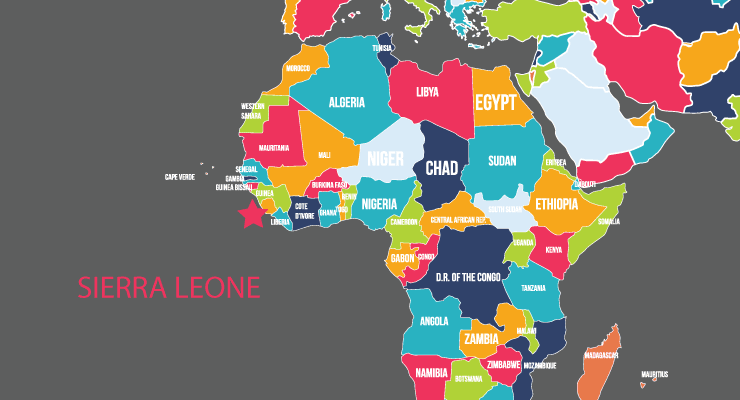Film actor Idris Elba and his wife were recently granted honorary citizenship in his late father’s homeland of Sierra Leone and asked by national leaders to serve as “brand ambassadors” for the country.
Following a brutal war from 1991 until 2002, rebounding tourism was badly hurt again by the 2014-2016 Ebola epidemic that killed nearly 4,000 people in Sierra Leone alone.
President Julius Maada Bio met with Elba and his wife and encouraged them to help “change the narrative of Sierra Leone from a war-torn and Ebola-affected country to a country that is full of investment opportunities and one of best destinations for tourism,” a presidential spokesman said.
Elba was born in London but his mother is from Ghana and his father from Sierra Leone, where he has expressed interest in investing in eco-tourism.
In an interview with BBC, Elba said the passport would allow him to “come back home as a son of the soil”.
Read more at AP News
How does Ebola affect the economy?
In addition to the loss of human life, the economic effects of an Ebola outbreak are devastating. An Ebola outbreak impacts all sectors of the economy, and can have long-lasting effects.
As a result of the Ebola epidemic in 2014, household incomes went down and poverty grew in the countries hit hardest by the virus. According to the World Bank’s updated 2016 report, the overall impact of the Ebola epidemic on Liberia, Guinea and Sierra Leone was estimated at $2.8 billion.
An Ebola outbreak may lead to restrictions on trade and transportation to prevent transmission of the virus. This may mean the limit of goods moved within a country. It also means limiting the movement of people and goods between countries. For example, in 2014, Sierra Leone declared a lockdown for three days to decrease the movement of people and to give healthcare workers a chance to identify new cases and spread awareness about the disease. The country also placed quarantine restrictions on high-risk areas and set curfews, which lasted as long as several months in some areas. Situations like this can harm an economy that relies heavily on cross-border trade. According to the Africa Economic Brief, informal cross-border trade is a source of income for about 43 percent of Africa’s population.
News of an Ebola outbreak prevents tourists from traveling to countries where an outbreak exists. Many countries rely on tourism economically. For example, according to the World Bank, receipts from 2012 added up to over $36 billion and contributed 2.8 percent to the gross domestic product (GDP) in the sub-Saharan Africa region.
How much did the Ebola outbreak cost?
Guinea, Liberia and Sierra Leone lost $2.2 billion in GDP in 2015 as a result of the epidemic. The greatest losses occurred in private sector growth, agricultural production and trade. A more recent study published in The Journal of Infectious Diseases estimates the total economic and societal costs of the epidemic to be $53 billion. This study considered the cost of losing human life, long-term conditions for Ebola survivors, treatment costs, infection control and deaths caused by other diseases during the epidemic.
Read more at Mercy Corps


